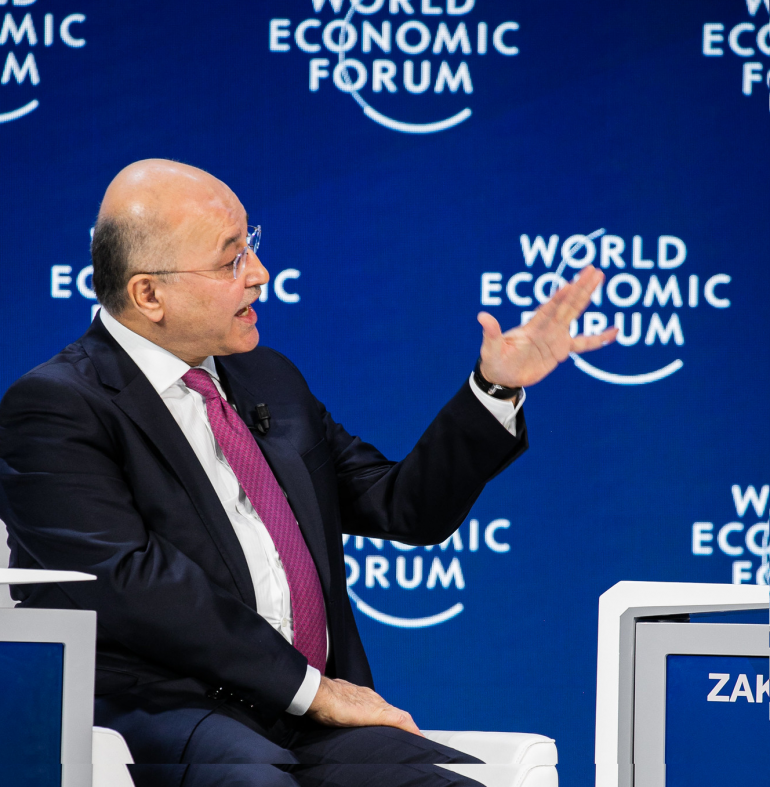Former Iraqi President Barham Salih has urged Iraq to pursue “root-and-branch” reforms to overcome the myriad of challenges it faces after 20 years of liberation. Reflecting on the progress made since the fall of Saddam Hussein in a piece for Foreign Policy (paywall), Salih acknowledges that while Iraq has taken strides in democracy and improving its economy, the nation still grapples with political deadlock, sectarian tensions, poor governance, and rampant corruption.
Here’s some background on Dr. Barham Salih, a former rising star and mainstay in Iraqi politics.
Previously regarded as a potential successor to Jalal Talabani in the PUK, Salih’s influence has waned significantly. He served as prime ninister of the KRG from 2009 to 2011 and had been prime minister in the Sulaymaniyah administration during the era of formal dual administration.
After Jalal Talabani suffered a stroke, deputy party leader Barham Salih sought the leadership role with some support from within the party. However, he was blocked by Talabani’s wife and in-laws (namely Hero and Shanaz Ibrahim Ahmed) due to ongoing personal and political issues. Barham posed a threat to Ibrahim Ahmed’s family as an outsider, and they wanted to maintain control of the PUK. Salih’s rivals succeeded in blocking his nomination for Iraq’s presidency in 2014, with Dr. Fuad Masum being preferred in a closed vote among Kurdish MPs, leaving the PUK with two official candidates.
Growing impatient with the internal issues within the party, Salih founded the Coalition for Democracy and Justice (CDJ) along with other political figures. The CDJ presented a liberal outlook on politics and opposed both the ruling KDP and PUK parties. Elected leader in early 2018, Salih’s bloc won only two seats in Iraq’s elections later that year, further diminishing his status in the Kurdistan Region.
With little leverage left and an eye on the federal presidency, Salih returned to the PUK in his previous capacity as deputy leader. He was nominated for the position by the PUK but left his own CDJ in the dust.
Salih won the post via a parliamentary vote in a humiliating rout of KDP nominee Dr. Fuad Hussein, upsetting KDP leader Masoud Barzani.
His return and victory were instigated by Bafel Talabani and Lahur Sheikh Jangi, who also upset members of their own family in the process.
In 2020, Salih was the favorite to win the party leadership in the 4th PUK congress, but was outmaneuvered by the Talabani cousins, who became co-leaders. Salih also lost the presidency in Baghdad in a race between himself and fellow PUK member Dr. Latif Rashid, who garnered most parliamentary votes despite being the party’s formal candidate.
Rashid, who is married to Jalal Talabani’s sister-in-law Shanaz Ibrahim Ahmed, was positioned as an independent nominee to block Salih’s re-election. He succeeded with support from major factions in the Shia bloc and the KDP.
There were also talks of the PUK throwing Salih under the bus in last-minute efforts to elect a consensus candidate, over one disliked by Barzani and Nouri al-Maliki. With no leadership role in Baghdad or the party, Salih has become more silent in recent months, likely calculating his next political move. Last month, Salih published what was meant to be a high-profile launch of plans for a new political settlement in Iraq. It barely made a dent in Iraqi and Kurdish media.


